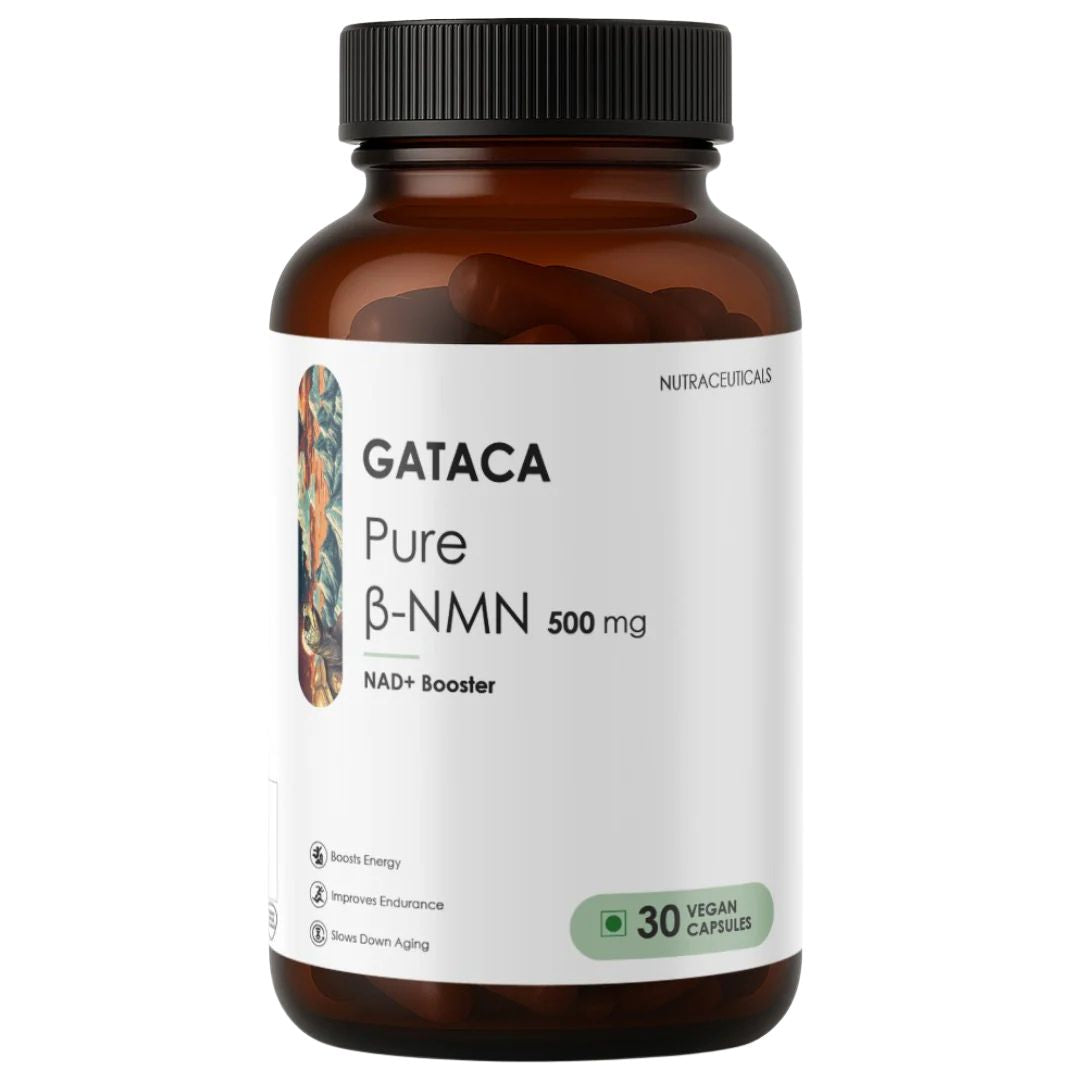What Happens To NAD+ Levels After 30?
Okay, picture this: NAD+ is like the unsung stagehand at a big Bollywood production and it’s behind the curtains making sure the lights work, the actors don’t trip over the wires and the director’s chai is always hot. Now imagine after you turn 30, that stagehand starts skipping work more often when suddenly people forget their lines and the whole show feels a little off. That’s your body without optimal NAD+ levels.
Scientifically speaking, NAD+ (short for nicotinamide adenine dinucleotide, a crucial coenzyme) begins to dip by as much as 65% by the age of 30-70 (Yikes!) which means less energy at a cellular level, sluggish DNA repair and a slower metabolism. Your mitochondria - the tiny engines of your cells, suddenly start running like old scooters instead of brand-new sports bikes. You’re still you, but just with a lot less vroom.
Why NMN Is Important After Age 30
Enter NMN, or nicotinamide mononucleotide, which is basically the upgrade your cells didn’t know they needed. After 30, fuel levels drop. NMN swoops in like a premium fuel delivery service, topping up the tanks before things go off schedule.
NMN acts as a precursor to NAD+, which means it helps your body produce more of this life-supporting molecule naturally and instead of patchy energy and slow recovery after a stressful day (or a killer HIIT session), your cells get the resources they need to function optimally. This obviously translates to better metabolic health, more consistent energy, faster recovery and even greater support for brain function overall.
Signs Of NAD+ Deficiency In Adults
Now, how do you even know if your NAD+ levels are waving the white flag? While you can get fancy lab tests, your body drops hints that are hard to ignore. Firstly, that unshakable fatigue despite mainlining three cups of filter coffee by noon? Classic sign. Then there’s the slower muscle recovery after a workout. It feels like you need a personal physio just to get off the sofa. Add to that a tendency to pick up every cold going around the office and a growing waistline despite no major changes in diet. Oh, and the new wrinkle that popped up overnight? That’s your skin telling you cellular repair isn’t what it used to be.
NMN Supplements Benefits After 30
For starters, energy production improves at a cellular level and your mitochondria begin to function more efficiently, which means you don’t feel like your limbs are full of sand by 4 pm. Recovery from workouts or long days at work also speeds up dramatically because your cells have the resources to repair themselves faster and that translates to less muscle soreness and better resilience overall.
Then there’s the impact on brain health. NAD+ is deeply involved in cognitive function, so better levels can mean sharper focus and memory. Your metabolism also gets a much-needed reboot. Think better fat utilisation and more stable blood sugar levels, which is pretty much the holy grail for anyone who wants to maintain a healthy weight without endless crash diets.
Conclusion
Here’s the thing, turning 30 isn’t some grand announcement that your energy and ambitions have packed their bags and left the building. It’s more like your body quietly tapping you on the shoulder and whispering that it might be time to give the engine room a little extra love, and when you choose to support your natural NAD+ production with NMN you’re essentially slipping your cells the tools they’ve been craving to fire on all cylinders again. NMN surely is NOT some magic bullet promising immortality but it is easily one of the most studied and genuinely promising ways to keep your energy, recovery and overall health humming as the years go by.
FAQs
1. What is NAD+, and why is it important after age 30?
NAD+ is a coenzyme found in every cell of your body and is essential for energy production, DNA repair and metabolism. After age 30, natural levels decline, which can lead to fatigue, slower recovery and accelerated ageing. Maintaining healthy NAD+ levels supports better energy and resilience.
2. Does NAD+ production really decline with age?
Yes. Studies show NAD+ levels start to dip by your late twenties and can fall by up to 50 percent by mid-life. This decline impacts energy production and cellular health. Supporting your body’s NAD+ levels through lifestyle or supplements becomes more important after 30.
3. How does low NAD+ affect your body and energy levels?
Low NAD+ can lead to constant fatigue, slower muscle recovery, brain fog, weakened immunity and even early signs of aging. Because NAD+ is vital for energy at a cellular level, its decline can affect nearly every aspect of physical and cognitive performance.
4. Can NMN supplements help restore NAD+ levels?
Yes. NMN is a precursor to NAD+ and helps the body increase its natural levels. Consistent NMN supplementation may improve energy, metabolism, brain function and cellular repair, making it especially useful after 30 when natural NAD+ production begins to decline.
5. Is NMN safe to take after 30 for long-term health?
Current research suggests NMN is safe for healthy adults when taken in recommended doses. It’s well tolerated, and since it supports natural processes in your body, it’s suitable for long-term use. Always consult your doctor before adding any supplement to your routine.






